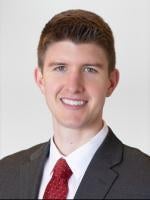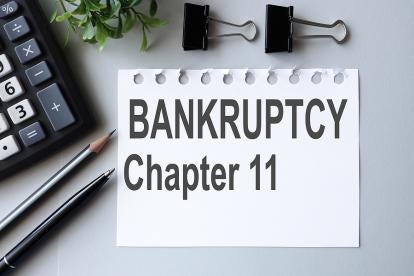As seen in the recent proliferation of bankruptcy cases seeking a structured dismissal or conversion after a successful sale, debtors constantly seek creative and efficient ways to wind up a case, including through a traditional plan of liquidation. Yet, as discussed below, debtors must ensure that any proposed voting procedures for a plan comply with section 1126 of the Bankruptcy Code, or are at least supported by, or supportable with, prior precedent. Otherwise, notwithstanding a debtor’s creativity and intent to further benefit a creditor class, such voting procedures will likely be denied.
Background
On August 29, 2023, Sunland Medical Foundation d/b/a Trinity Regional Hospital Sachse and one affiliate (together, “Sunland Medical”) filed for chapter 11 bankruptcy protection in the United States Bankruptcy Court for the Northern District of Texas. Sunland Medical occupied a 10-acre site in Sachse, Texas and served thousands of patients in a medically underserved area considered to be one of the fastest growing communities in Dallas. Sunland Medical’s financial woes began at its inception on account of inadequate financing, capital shortfalls due to the lack of a comprehensive startup and operational plan, struggles to recruit and retain physicians, and the inability to attract a large patient volume in the competitive Dallas market.
After a Court-supervised sale process, on January 31, 2024, Sunland Medical closed a sale of its assets to Columbia Medical Center of Plano Subsidiary, L.P. Thereafter, Sunland Medical began to wind up the estates and prepare a plan of liquidation.
Proposed Plan Mechanism
Sunland Medical filed its initial plan of liquidation on February 26, 2024 (the “Initial Plan”). The Initial Plan contained fourteen classes of claims and interests, with class 11 designated for holders of general unsecured claims. The Initial Plan included two treatments for class 11 claimants:
(1) holders who vote to accept the Initial Plan shall receive:
(a) their pro rata share of the beneficial interests in the GUC Liquidating Trust,
(b) their pro rata share of the beneficial interests in the Liquidating Trust, and
(c) a release of any preference claim Sunland Medical may have against them (collectively, the “Full Consideration”); and
(2) holders who do not vote or who vote to reject the Initial Plan:
(a) shall receive their pro rata share of the beneficial interests in the general Liquidating Trust (the “Limited Consideration”), but
(b) shall not receive a release of any preference claim Sunland Medical may have against such holders.
On March 13, 2024, Sunland Medical filed its first amended plan of liquidation (the “First Amended Plan”). The First Amended Plan modified the treatment for class 11 claimants. Specifically, the Full Consideration that was originally only offered to holders who vote to accept the plan was now also being provided to holders who elect to not vote on the plan (the “Non-Voting Holders”). Accordingly, the Non-Voting Holders would no longer only receive the Limited Consideration and be subject to future preference liabilities. As reflected in Sunland Medical’s proposed solicitation procedures order, in exchange for Sunland Medical granting the Non-Voting Holders the Full Consideration, such holders were now “deemed to vote in favor the [First Amended] Plan for tabulation purposes in determining Class 11’s acceptance of the [First Amended] Plan.” Such Non-Voting Holders were also deemed to have not opted out of third-party releases contained in the First Amended Plan.
The Bankruptcy Court’s Analysis
The bankruptcy court declined to enter the proposed solicitation procedures order and rejected Sunland Medical’s attempt to have the Non-Voting Holder’s nonvotes deemed to be votes in favor of the First Amended Plan, citing two reasons. First, Sunland Medical could not provide the court with citations to any prior cases where a bankruptcy court authorized a procedure to deem a nonvote by a holder of an impaired class as acceptance of the proposed plan. Second, section 1126(a) of the Bankruptcy Code authorizes a holder of a claim to accept or reject a proposed plan, and after the voting has concluded, the debtors’ tabulation report reflects whether impaired classes voted to accept or reject the plan. There is nothing in section 1126(c) of the Bankruptcy Code that permits a plan to deem nonvotes as acceptances of a plan.
The bankruptcy court approved a revised version of the solicitation procedures order and authorized the solicitation of an updated plan of liquidation (the “Second Amended Plan”). The revised solicitation procedures order removed the provision deeming that a Non-Voting Holder accepted the plan. Further, the Second Amended Plan now provides that a Non-Voting Holder will only obtain the Full Consideration, including the release of any preference claim, if class 11 accepts the plan under section 1126(c) of the Bankruptcy Code. The deadline for voting on the Second Amended Plan is April 16, 2024.
Takeaways
Sunland Medical’s First Amended Plan and proposed solicitation procedures order was a creative attempt to garner additional support from holders of general unsecured claims. Not only was it creative, but it reflected what appeared to be a reasonable quid pro quo: release of preference claims and entitlement to a pro rata share of two liquidating trusts in exchange for a deemed vote approving the plan and the associated third-party release. On its face, it does not seem unreasonable for Sunland Medical to deem such holders as having accepted the plan since it would benefit both the Non-Voting Holder and Sunland Medical.
Yet, the bankruptcy court was astute and forward-thinking to consider the implications of such proposed treatment in the face of section 1126(c) of the Bankruptcy Code. If the proposal had been granted, Sunland Medical’s ballot report would not appropriately reflect whether class 11 accepted or rejected the plan in accordance with the Bankruptcy Code. And if approved, this provision could have served as a catalyst for future debtors to try to have other (or all) classes deemed to accept a plan based on creditors’ failure to timely submit a ballot. Bankruptcy practitioners often attempt to employ innovative concepts that may, or may not, be authorized based on the plain language of the Bankruptcy Code. Sunland Medical’s plan proposal is another example of the potential perils in doing so.




 i
i


